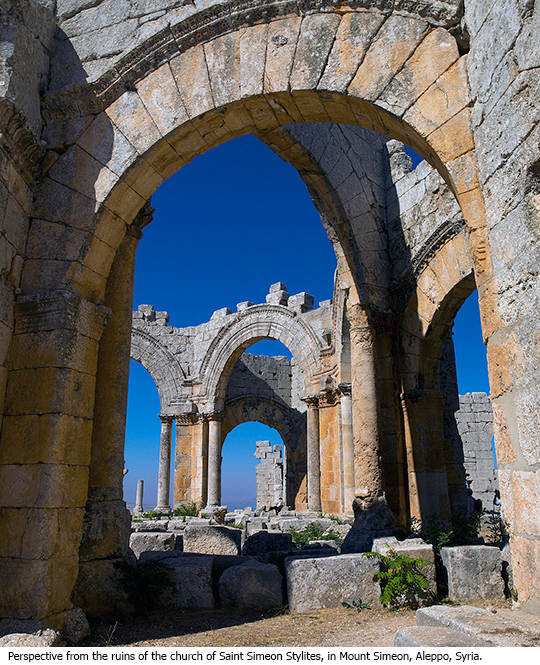Greek Orthodox Community of Melbourne and Victoria
Εκδήλωση

- Τίτλος:
- Byzantine Art & Architecture in Syria: hermits, monasteries and pilgrimage
- Πότε:
- 11.07.2013 19.00 h
- Που:
- Kelvin Club - Melbourne
- Κατηγορία:
- Φιλολογία
Περιγραφή
Lecturer: Dr Ursula Betka.
Entry:Free.
The lecture focuses on the Greek-Byzantine Empire between the 4th to the 12th centuries in Syria where an extensive Christian culture developed.
We examine the emergence of a distinctively eastern style of monasticism such as at Deir Ma Mousa monastery overlooking the Great Syrian Desert, and the importance of pilgrimage – exemplified in the vast church-shrine of St Simeon Stylite, built by Emperor Zeno in the 5th century.
Also preserved in the Christian village of Maaloula are two early-Byzantine monastic communities dedicated respectively to Sts Sergius and Bacchus and St Thekla; they continue to survive today.
The vast region known as the 'Dead Cities' in northern Syria is also one of the greatest storehouses of early-Byzantine architecture in the ancient world. We study in particular, the remarkably well-preserved ‘dead cities’ of Serjilla and Al-Bara.
Biography
Dr Ursula Betka lectures in Medieval Art History at La Trobe University and has a special interest in Byzantine Art and culture. She has travelled extensively through the Middle East, studying the early and middle-Byzantine art and architecture of the region.
Ursula is also a practicing Iconographer and regularly teaches courses on Byzantine Icon painting at the Centre of Adult Education (CAE) in Melbourne.
Τόπος διεξαγωγής
- Venue:
- Kelvin Club - Διαδικτυακός τόπος
- Οδός:
- Melbourne Place
- ΤΚ:
- 3000
- Πόλη:
- Melbourne
- Νομός:
- VIC
- Χώρα:
-

The Kelvin Club, with a history dating back to 1865, is a private member's club located in the heart of Melbourne. Membership is drawn from the academic, corporate, legal, medical, arts, public service and private business communities. The Club is inclusive, with both men and women forming a stimulating and diverse community.
The inclusive environment, fine dining and comfortable facilities are ideal for members who enjoy participating in a broad range of club activities. Members can invite friends and guests to to join then in all The Kelvin Club functions. Friends and guests can become members themselves and enjoy the full range of club benefits.
EventList powered by schlu.net

